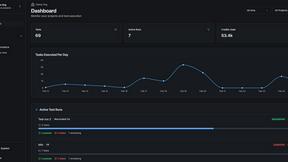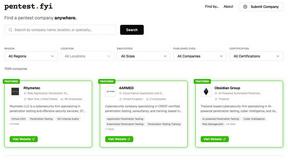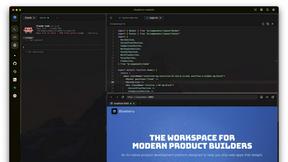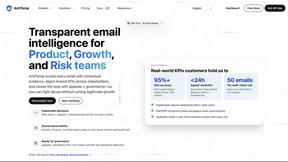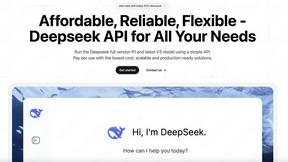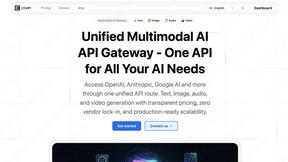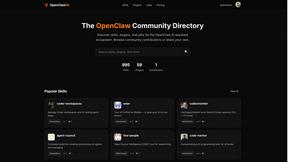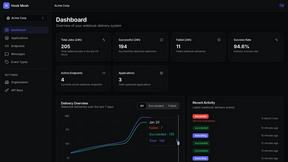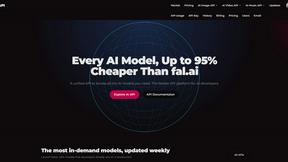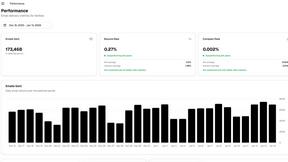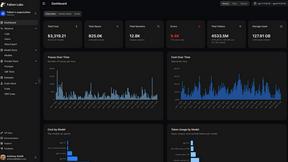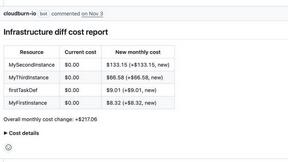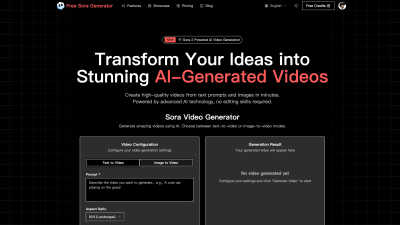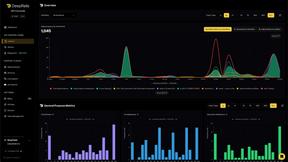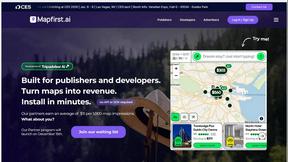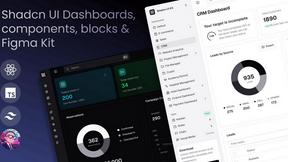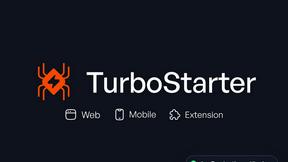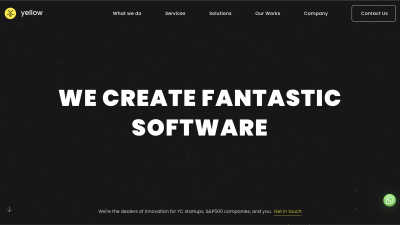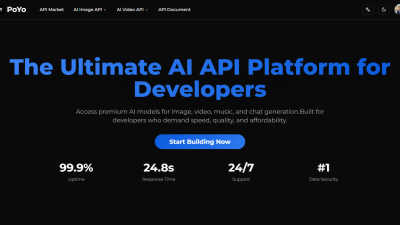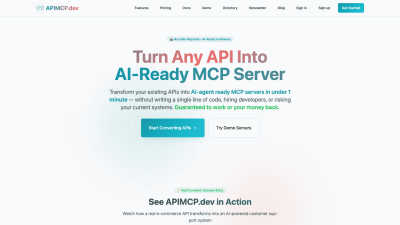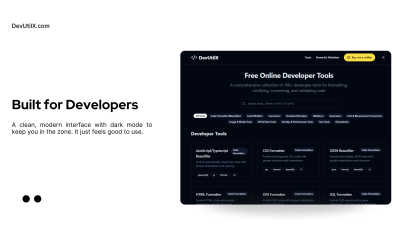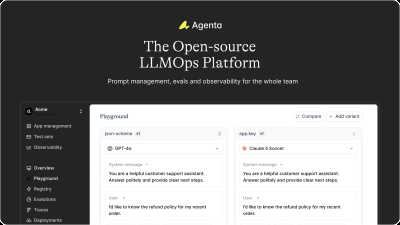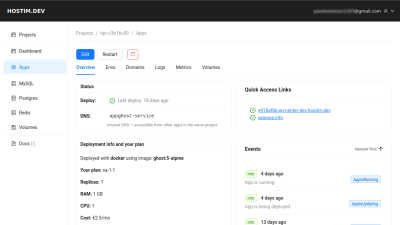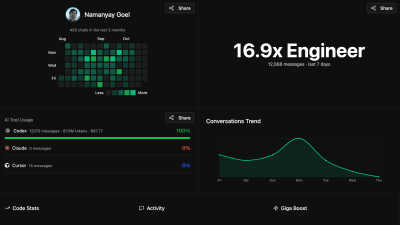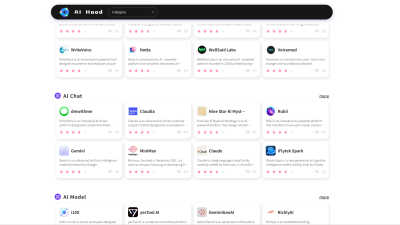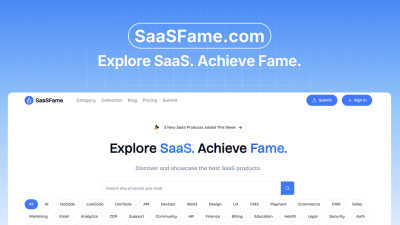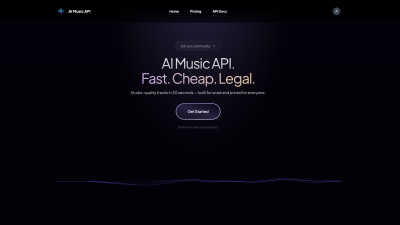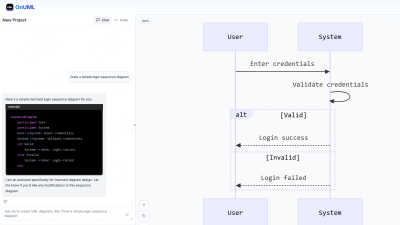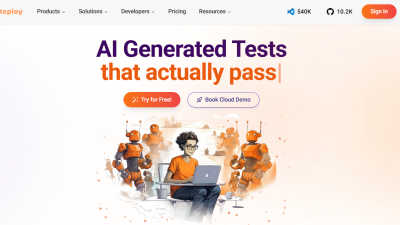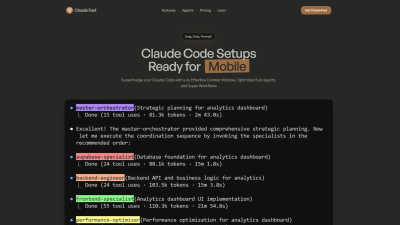Best Development AI tools (42+)
Discover 42+ best development AI tools. Compare features, pricing, and reviews. Free and paid options available.
qtrl.ai
qtrl.ai helps QA teams scale testing with AI agents while keeping full control and governance.
Pentest.fyi
Discover and connect with top penetration testing companies worldwide tailored to your specific needs.
Blueberry
Blueberry is an all-in-one Mac app that unifies your editor, terminal, and browser for seamless web app development.
Anti Tempmail
AntiTemp is an email intelligence API that boosts growth while preventing abuse with accurate risk scoring and.
My Deepseek API
Unlock powerful AI capabilities with My Deepseek API, offering affordable and flexible solutions for all your needs.
CCAPI
CCAPI is your all-in-one AI API gateway, offering seamless access to text, image, audio, and video generation with.
Open Claw Directory
Explore skills, plugins, and job opportunities within the OpenClaw AI assistant ecosystem to enhance your experience.
HookMesh
HookMesh adds reliable webhook delivery and a customer portal to your SaaS in minutes.
Vidgo API
Vidgo API gives developers affordable access to top AI models, saving up to 95% compared to competitors.
Ark
Ark is an AI-driven email API designed for seamless multi-tenant integration, simplifying email management for.
Rock Smith
Rock Smith is an AI-powered QA testing tool that mimics user behavior for seamless, reliable, and maintenance-free.
Fallom
Fallom gives you real-time observability to track, debug, and optimize your AI agents and LLM calls.
The Forge Calculator
The Forge Calculator helps Roblox players optimize crafting by predicting outcomes and estimating ore chances effortl...
diffray
Diffray uses multi-agent AI to review your code, catching real bugs with far fewer false alarms.
CloudBurn
CloudBurn shows your AWS cost changes right in GitHub pull requests before they deploy.
Free Sora Generator
Create stunning Sora AI videos from text or images instantly and for free with Free Sora Generator.
DeepRails
DeepRails helps developers detect and fix AI hallucinations, ensuring accurate LLM outputs before reaching users.
Mapfirst.ai
Mapfirst.ai offers free interactive maps that enable publishers and developers to earn revenue through clicks and eas...
LaunchSoon
LaunchSoon empowers you to validate ideas, build an audience, and create buzz for your launch with ease.
Shadcn UI Kit
Accelerate your development with the Shadcn UI Kit's extensive collection of templates, components, and dashboards.
Claude Skills - Online Marketplace
Explore a vast marketplace of 400+ Claude skills to tailor and enhance your AI tool experience effortlessly.
WebsiteCheckr
Validate your SaaS idea effortlessly by analyzing real user pain points and market demand with WebsiteCheckr.
TurboStarter
TurboStarter lets you launch web, mobile, and extension apps in minutes with one-click deployment and built-in features.
Yellow Systems
Yellow Systems delivers bespoke software solutions that drive innovation and growth for startups and established comp...
PoYo API
PoYo API empowers developers with seamless access to premium AI models for image, video, music, and chat generation.
APIMCP.dev
Easily convert any REST API into an AI-ready MCP server in minutes without coding or complex setups.
DevUtilx
DevUtilx is your all-in-one toolkit with 100+ free online tools to format, convert, and validate code instantly.
Agenta
Agenta is an open-source platform that helps teams build and manage reliable LLM apps together.
Hostim.dev
Hostim.dev simplifies app deployment with Docker, Git, or Compose, offering built-in databases, security, and predict...
Giga AI
Giga AI streamlines app development by remembering your decisions and reducing errors for faster, quality code creation.
Recall.ai
Recall.ai offers a powerful API for seamless meeting recordings, transcriptions, and metadata retrieval in real-time.
Volume Shader BM
Discover your GPU's true power with Volume Shader BM, the accurate performance testing tool.
AIToolsHood
Discover the best AI tools for work and life in one simple, curated directory.
SaaSFame
SaaSFame helps you discover top SaaS products and elevate your business with expert insights and curated collections.
Dreamflow
Dreamflow is a visual AI builder that lets you create production-ready mobile apps with seamless canvas and code inte...
SunoAPI
SunoAPI is a fast, affordable AI music generation API for developers to create studio-quality tracks.
Mod
Mod is a CSS framework that helps you build SaaS app interfaces quickly with its ready-to-use components.
OnUml
OnUML uses AI to instantly create UML diagrams from your natural language descriptions or Mermaid code.
Keploy
Keploy is an AI tool that automatically creates reliable unit and integration tests for developers.
ClaudeFast
ClaudeFast supercharges Claude Code with smart agents, 6x context, and automated workflows.
Popular Comparisons in Development
Popular Alternatives in Development
About Development AI tools
The Development Category in an AI Directory encompasses tools and resources designed for software developers. Its main purpose is to streamline workflows through automation, enhance productivity, and improve project management. Key benefits include access to innovative libraries and frameworks that accelerate development processes, enabling teams to innovate faster and more efficiently.
FAQs for Development
How do tools in the Development Category enhance developer productivity?
Tools in the Development Category enhance developer productivity by providing resources that automate repetitive tasks, streamline coding processes, and facilitate better collaboration. These tools enable developers to focus on critical areas, reduce downtime, and deliver high-quality software products more efficiently, addressing common challenges faced in development projects.
What unique features do Integrated Development Environments offer in the Development Category?
Integrated Development Environments (IDEs) in the Development Category offer unique features such as code completion, debugging tools, and seamless integration with version control systems. These functionalities enhance coding efficiency, simplify project management, and improve overall software quality by ensuring that developers have everything they need in one accessible platform.
In what scenarios are Version Control Systems most beneficial within the Development Category?
Version Control Systems are most beneficial in scenarios involving teamwork on software projects, where multiple developers contribute code. They allow teams to manage code changes effectively, prevent conflicts, and maintain a reliable history of project iterations. This ensures that all members can collaborate without losing progress or compromising project integrity.
What makes Automated Workflow Management a competitive advantage in development?
Automated Workflow Management provides a competitive advantage by significantly reducing the time spent on manual, repetitive tasks. This efficiency enables developers to allocate more effort towards innovation and problem-solving. By streamlining project timelines and enhancing collaboration, businesses can bring products to market faster while maintaining high-quality standards.
How do tools in the Development Category adapt to changing technology needs?
Tools in the Development Category adapt to changing technology needs by regularly updating features and incorporating the latest advancements. This ensures that developers have access to innovative solutions that meet contemporary demands, ultimately improving their ability to create robust software solutions that respond to evolving market conditions and user requirements.
How do Integrated Development Environments support collaborative software development?
Integrated Development Environments support collaborative software development by providing shared tools that enable developers to work together seamlessly. Features like code sharing, real-time editing, and integrated communication channels make it easy for teams to coordinate their efforts, track progress, and ensure that everyone is aligned on project goals.

